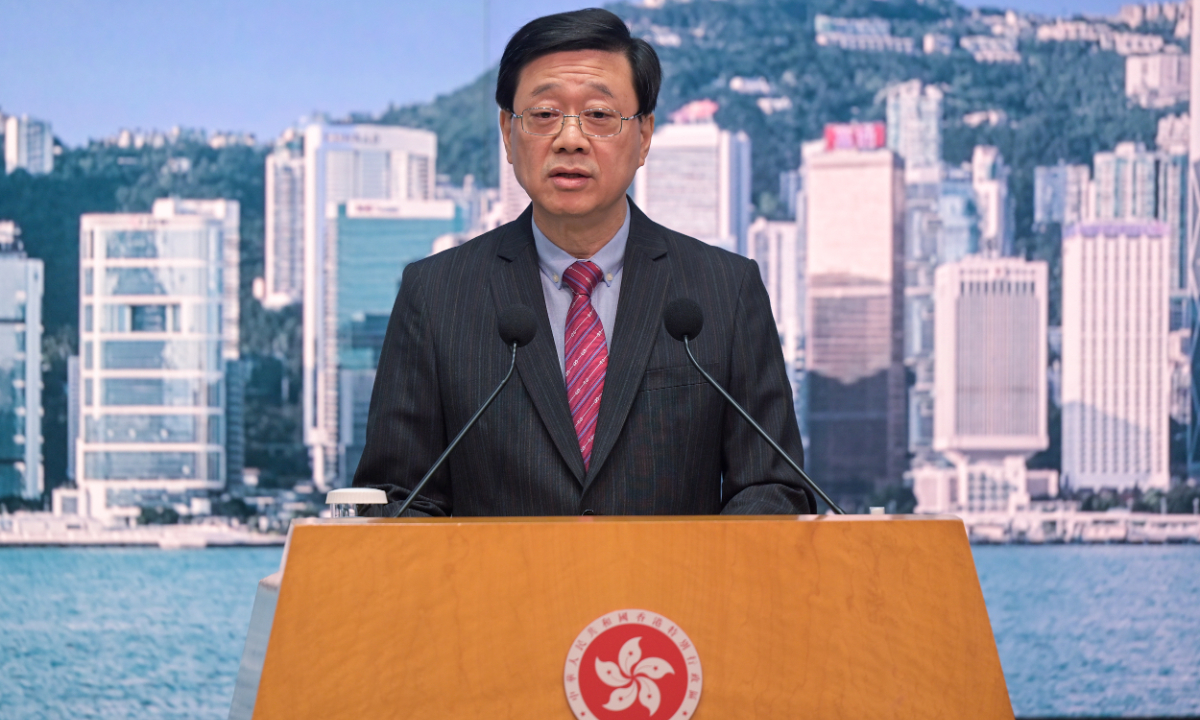HK chief executive ‘very concerned’ about crypto fraud case, vows to strengthen investor protection

The Hong Kong Special Administrative Region Chief Executive John Lee at a press conference on June 13, 2023 Photo: VCG
Hong Kong Special Administrative Region (HKSAR)'s Chief Executive John Lee Ka-chiu said that he was “very concerned” about the fraud case involving cryptocurrency trading platform JPEX which has reportedly resulted in HK$1.3 billion ($166 million) in losses for investors, vowing to strengthen investor education and protection, according to media reports on Friday.
Lee made the remarks during a speech at an event organized by the HKSAR’s financial services community on Thursday, according to local media reports. An ongoing investigation into the case has sent shockwaves across HKSAR society, where questions have been raised about problematic practices of crypto firms, the use of internet influencers, and regulations to protect investors.
In the speech, Lee said that he was “very concerned” about the fraud case involving an unlicensed virtual asset trading platform, stressing that investor education is crucial and the financial services community should inform investors potential risks when marketing investment projects.
Lee also stressed the importance of investing in licensed and regulated virtual asset trading platforms. The policy of the HKSAR government is to implement effective regulatory mechanisms to protect investors, be open and transparent in releasing relevant information and attach importance to structured investor education.
As the investigation into Dubai-based JPEX continues, 11 people, including popular internet influencers, have been arrested so far. The case reportedly involves more than 1,000 people.
According to local media reporting, illegal virtual asset trading platforms often recruit celebrities and internet influencers as spokespeople for their products, with a number of overseas platforms setting up subsidiaries in Hong Kong to conduct fraudulent market awareness and training exercise. When these platforms accumulate sufficient funds from investors, they restrict investors from selling their assets and even threaten to wipe out their assets, and exert pressure on regulators.
Global Times
